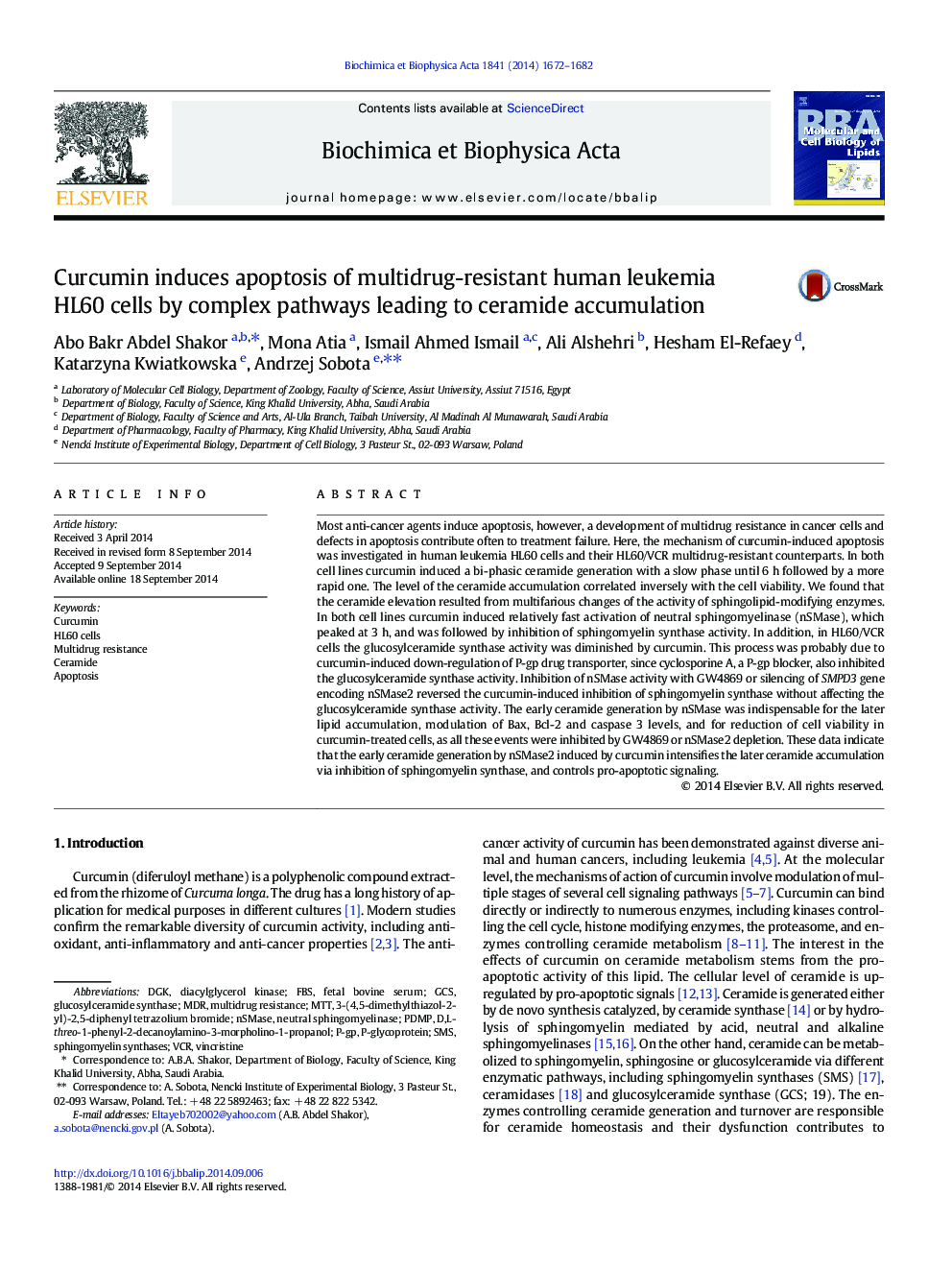| کد مقاله | کد نشریه | سال انتشار | مقاله انگلیسی | نسخه تمام متن |
|---|---|---|---|---|
| 1949146 | 1537723 | 2014 | 11 صفحه PDF | دانلود رایگان |

• Curcumin induces biphasic ceramide generation in human leukemic HL60 cells.
• The initial ceramide generation is by activation of neutral sphingomyelinase.
• Those early events are indispensable for sequent inhibition of sphingomyelin synthase.
• In multidrug-resistant cells, inhibition of glucosylceramide synthase also occurs.
• In result, ceramide accumulation and apoptosis of cells proceeds.
Most anti-cancer agents induce apoptosis, however, a development of multidrug resistance in cancer cells and defects in apoptosis contribute often to treatment failure. Here, the mechanism of curcumin-induced apoptosis was investigated in human leukemia HL60 cells and their HL60/VCR multidrug-resistant counterparts. In both cell lines curcumin induced a bi-phasic ceramide generation with a slow phase until 6 h followed by a more rapid one. The level of the ceramide accumulation correlated inversely with the cell viability. We found that the ceramide elevation resulted from multifarious changes of the activity of sphingolipid-modifying enzymes. In both cell lines curcumin induced relatively fast activation of neutral sphingomyelinase (nSMase), which peaked at 3 h, and was followed by inhibition of sphingomyelin synthase activity. In addition, in HL60/VCR cells the glucosylceramide synthase activity was diminished by curcumin. This process was probably due to curcumin-induced down-regulation of P-gp drug transporter, since cyclosporine A, a P-gp blocker, also inhibited the glucosylceramide synthase activity. Inhibition of nSMase activity with GW4869 or silencing of SMPD3 gene encoding nSMase2 reversed the curcumin-induced inhibition of sphingomyelin synthase without affecting the glucosylceramide synthase activity. The early ceramide generation by nSMase was indispensable for the later lipid accumulation, modulation of Bax, Bcl-2 and caspase 3 levels, and for reduction of cell viability in curcumin-treated cells, as all these events were inhibited by GW4869 or nSMase2 depletion. These data indicate that the early ceramide generation by nSMase2 induced by curcumin intensifies the later ceramide accumulation via inhibition of sphingomyelin synthase, and controls pro-apoptotic signaling.
Journal: Biochimica et Biophysica Acta (BBA) - Molecular and Cell Biology of Lipids - Volume 1841, Issue 12, December 2014, Pages 1672–1682